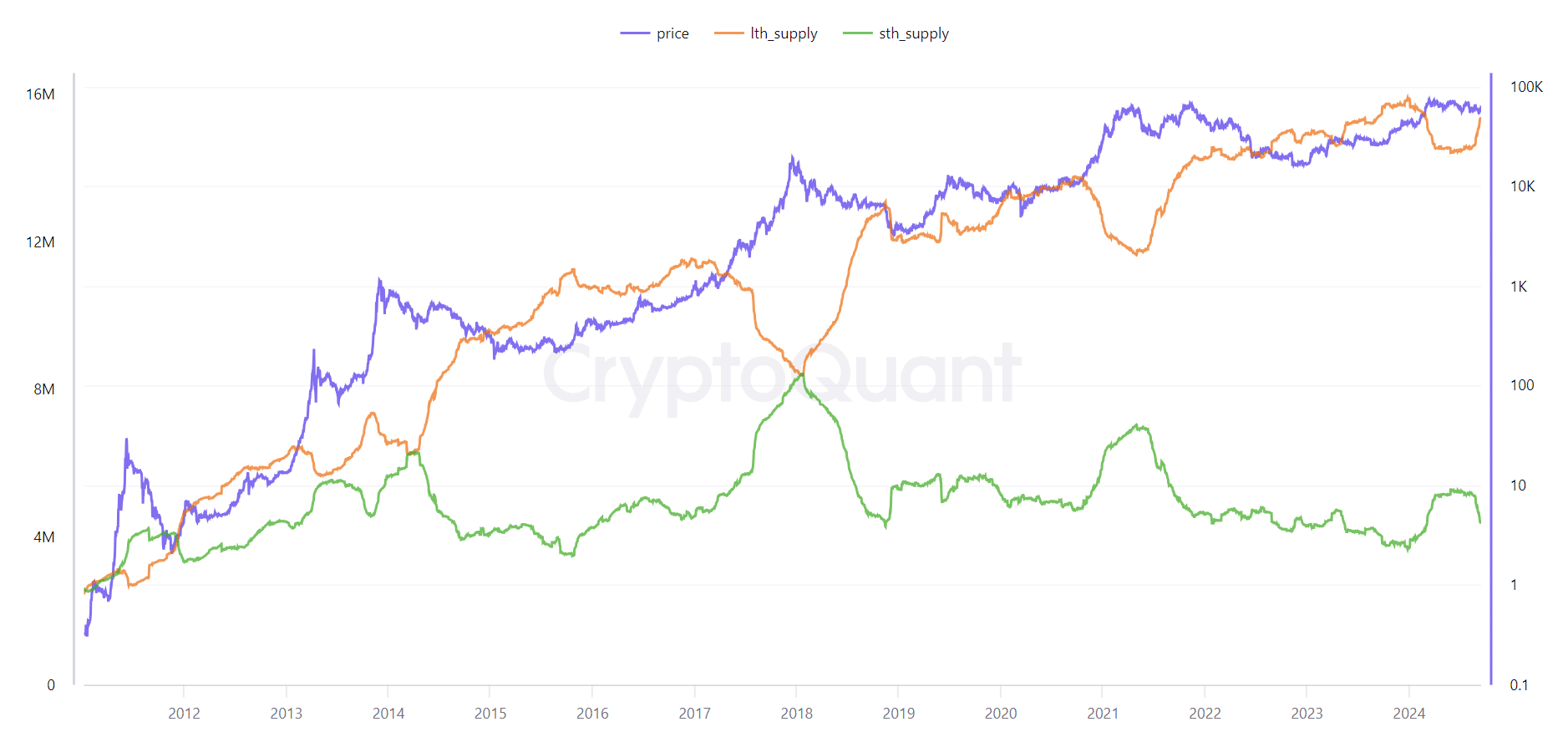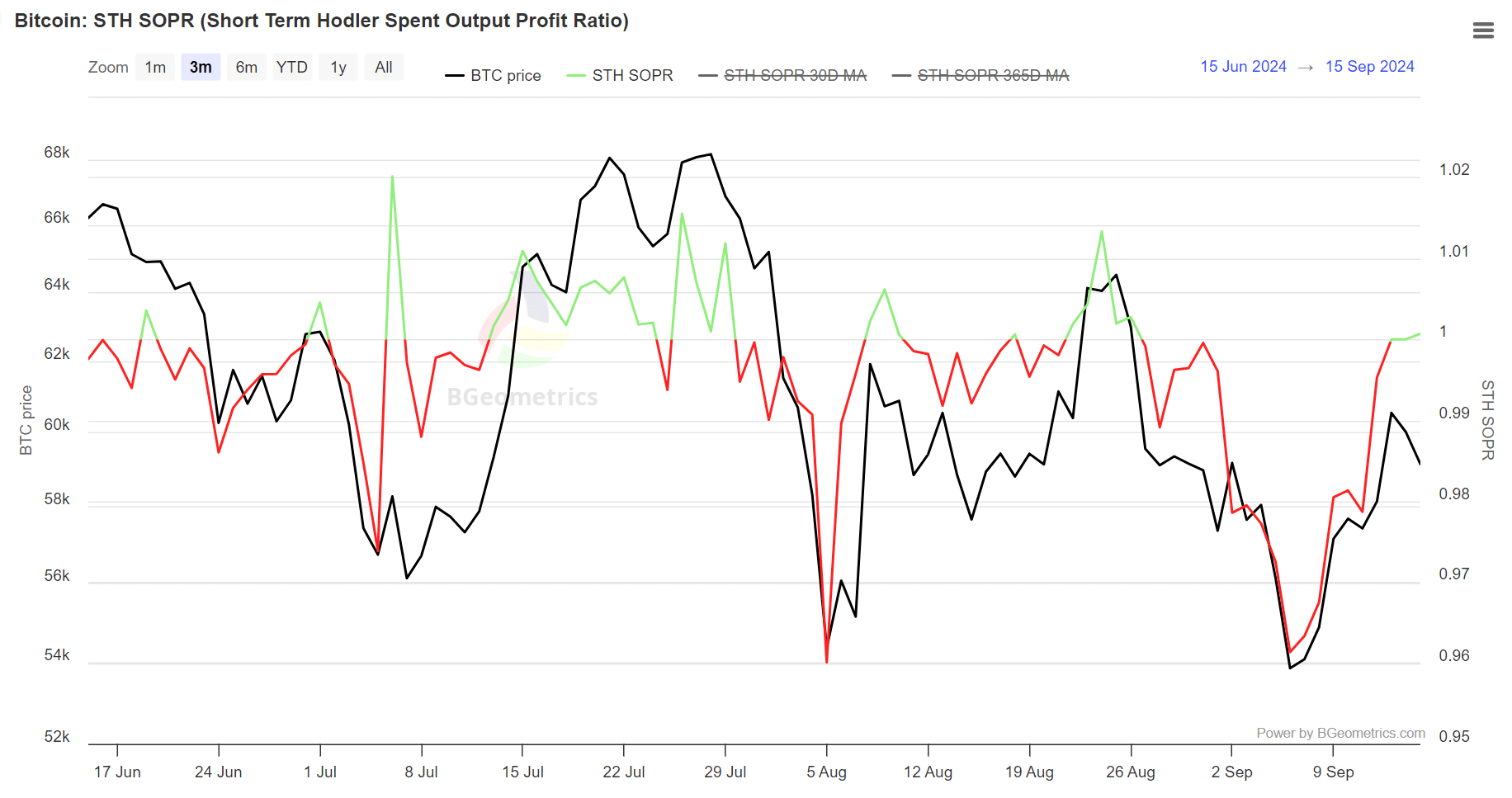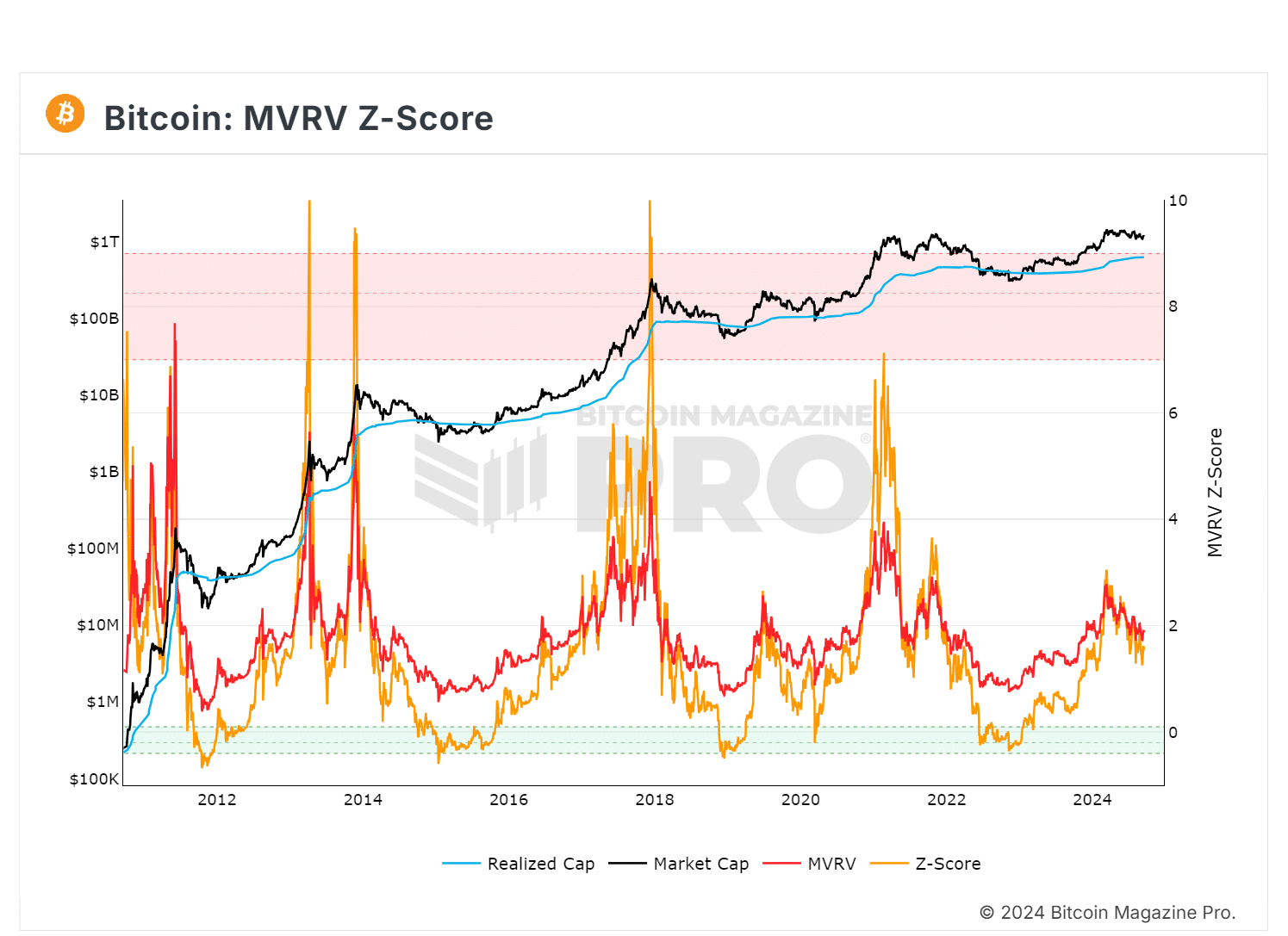- BTC has dipped below $60K once again, sparking renewed discussions in the crypto world.
- A reversal could be possible if several key conditions are met.
Bitcoin [BTC] surged above $60K over the weekend after a two-week consolidation. However, the momentum was short-lived, as BTC retraced back to $58,580 at press time.
With the momentum fading, AMBCrypto analyzed the factors behind the decline—Is this just a temporary blip, or is the trend likely to continue?
Why is Bitcoin down today? STHs explain
Looking at the daily price chart, it wouldn’t be surprising if many investors decided to lock in profits after a run of six consecutive green candles.
This is particularly relevant following the bearish pullback in late August, which saw BTC drop below $55K.
Consequently, after a challenging battle, stakeholders squeezed in before the momentum stalled.

Source : CryptoQuant
A glance at the chart above clearly showed how STHs and LTHs strategize differently during market cycles. LTHs wait for price drops to accumulate BTC, while STHs typically act as the price nears a market top.
As a result, each time BTC approaches a crucial price zone, the STH supply increases, often followed by a sharp decline.
This pattern illustrates how STHs capitalize on LTH accumulation to drive the price up, then exit once the top is reached.
To further confirm whether STHs selling contributed to Bitcoin’s decline, AMBCrypto examined the index below.


Source : BGeometrics
Unsurprisingly, the day after BTC closed near $60,500, the STH-SOPR rose above 1, indicating that more short-term holders were cashing in on their gains.
To make matters worse, whales also scaled back their holdings, intensifying the selling pressure. This bearish trend might have dampened the short-squeeze opportunity that fueled the initial surge.
Now, the next dip could be more appealing, allowing LTHs to step in and counter the pullback.
Finding the next dip
The chart below showed Bitcoin’s MVRV momentum has been declining since the price fell below $66,750 in June. Despite fluctuations, this downward trend has continued without a reversal.


Source : Bitcoin Magazine Pro
If the bulls don’t push for an immediate rebound, a break below the $58,100 support may lead to a drop towards $55,000.
Historically, when the z-score enters the green box, buying BTC leads to outsized returns, prompting LTHs to accumulate.
Read Bitcoin’s [BTC] Price Prediction 2024–2025
Meanwhile, other macroeconomic factors might trigger a price correction, causing the z-score to reach the market top before entering the accumulation phase.
In short, a reversal isn’t guaranteed unless certain conditions are met: profit-taking is replaced by a strong bull rally, either due to a dip to $55K or an impending rate cut by the Fed.

